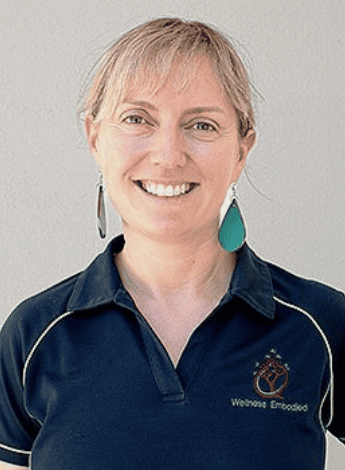
Step back to unlock your team’s potential

Physiotherapists are naturally very giving people, says private practice owner Suzanne Rath, who can find themselves devoting all their time and energy to their staff. Suzanne discusses the importance of quitting being the go-to person and building staff capacity so you can focus on growing your business and becoming the leader you want to be.
Trying to be everything to everyone can stretch even the most dedicated leader too thin.
As a practice owner, it’s tempting to take on multiple responsibilities—as mentor, manager, therapist and sometimes even friend—in an effort to support your staff.
However, this approach can create confusion, dilute your leadership effectiveness and compromise the overall success of your business.
When practice owners spread themselves across too many roles, it can lead to burnout, unclear boundaries and mixed messages for the team.
Leaders should focus instead on clearly defining their core responsibilities and delegating tasks where appropriate.
Clear role differentiation helps staff know where to seek guidance and who to approach for specific issues and it ensures that
they are equipped with the resources they need to succeed.
Delegating responsibilities to key team members not only empowers them but also allows private practice owners and managers to focus on higher-level strategy and growth for the practice.
Ultimately, this approach leads to a more sustainable business model, higher staff satisfaction and better patient outcomes, says Suzanne Rath APAM, a private practice owner in Cairns, far north Queensland.
Suzanne came to the realisation that she couldn’t continue being everything to all her staff, all the time, gradually.
Far from having a light bulb moment, Suzanne says she invested in her own management training and skills development to the point where she was able to objectively reflect on her leadership style.
Only then did she see that she had been channelling her time and efforts in ways that were holding her back from focusing on the business’s growth—and on what made her happy as a leader.
‘If a team member comes to me asking a high-level question, then yeah, amazing.
'But if somebody’s asking me where the spare towels are, that’s a waste of my time. It also doesn’t empower your team to grow.
'I want to have team leaders and other people who are empowered to answer questions and to become leaders in their own right,’ Suzanne says.
‘We have a structured career progression pathway in place and if everybody bypasses them and comes straight to me, it doesn’t actually enable the team to grow and learn.’
Set to speak on this topic at the upcoming FOCUS24 conference in Perth, Suzanne says that setting clear boundaries is imperative for creating a solid foundation of trust in your practice.
This, Suzanne says, goes hand in hand with transparent procedures and policies on everything from remuneration and annual leave to professional development.
The objective behind the implementation of all these processes is to establish fairness as well as build leadership capacity within the team.
‘One of the things I see on social media that I find concerning is people saying “I try not to say no to my team”.
'There’s a lot of social media clickbait around the culture of giving, giving and giving.
'Part of your culture should also be accountability, specific expectations for everybody and fairness.
'Strong boundaries are very important, whether it’s at home or in the workplace. And so is having clear systems,’ Suzanne says.

Suzanne Rath.
‘For example, we don’t have pay gaps. We don’t pay more because somebody negotiates better.
'Fairness and transparency are among the key factors said to help prevent burnout.’
Suzanne says that after opening her practice, Wellness Embodied Cairns, in 2017 in far north Queensland—a place where she knew nobody but where she wanted to create the practice she’d always envisaged—she took a multipronged approach to management.
Suzanne undertook management training, introduced psychometric tests for her team into the workplace and also engaged a business coach.
The coach suggested that she use the Working Genius model at the practice, which Suzanne says has transformed how the practice operates on macro and micro levels.
‘We’re big on learning who you are, who your teammates are and how we all work differently,’ Suzanne says.
‘It helps identify why I might think something is common sense or do something in a way that’s unique to me and why others mightn’t necessarily think that’s the case or do it that way.
'It’s all because of our beliefs, background, personality styles and so on.
‘After seven years in business and multiple coaching programs and leadership courses, I’ve finally come to terms with the fact that my zone of genius is not making everyone happy, hitting everyone’s motivators or having the perfect leadership style
for all—and other practice owners should consider this too. Preferably before burnout kicks in.’
One of the keys to Suzanne’s success, she points out, has been delegating selected tasks to her team, which affords her more time for her passion in leadership—big-picture thinking.
Working on strategies to grow the practice appeals to her ideas-based thinking and enables Suzanne to come up with solutions to the challenges she and the practice encounter.
Having ideas is all well and good, she says, but the ability to galvanise the team to respond to those ideas was something she identified as a weakness in her leadership style.
‘I’m very big picture, very ideas based, so when coming up with solutions I’m like bang, bang, bang, bang.
'I could produce ideas all day long. But getting people together to work on the ideas—the galvanising and the enablement—isn’t my natural skill set.
'So I’ve learned a lot of that through leadership training,’ Suzanne says.
‘If I have to spend all day, every day, saying to people “This is why we do this; how can I help you do that?” it just exhausts me.
'Whereas if I can go through my days saying “Hey guys, here is this amazing idea” or somebody’s approaching me with a high-level problem and I’m coming up with a solution, then I’m completely happy. High-level coaching conversations are my joy.’
Having created a tool for individuals to assess their current health, vitality and adaptability status (key factors in prevention of burnout and other common HR issues), Suzanne is also sharing her knowledge with peers through conference presentations.
She has released a tool to help clinicians set boundaries and stick to them.
‘Some of it’s about analysing how you invest your time and energy.
'If you think of your energy as a bank account, you want to look at how you’re depositing energy in—are you spending time investing in your health? Connecting with friends or family?—and at how you’re taking energy out, the energy drains.
'It’s important to look at the things that can genuinely be delegated,’ Suzanne says.
Tips to empower your team for leadership
Here are some practical tips from Suzanne Rath to help you create a motivated, empowered team that thrives in leadership roles and contributes to the continued growth of your practice:
• create good procedures for business drivers such as remuneration systems, inductions and day-to-day practice management
• seek out opportunities to delegate and use delegation tools
• identify areas of potential growth in your team
• analyse how you invest your time and look for what is draining your energy
• invest in leadership training and coaching; find people who are smarter than you and incorporate their advice
• discover what brings you joy at work and outside of it; play to your strengths
• set clear boundaries that are communicated and empower your team to make decisions
• be direct and polite in your communication and have difficult conversations when needed.
© Copyright 2025 by Australian Physiotherapy Association. All rights reserved.





